20 Must-Read Texas Hold’em Poker Books for Every Player
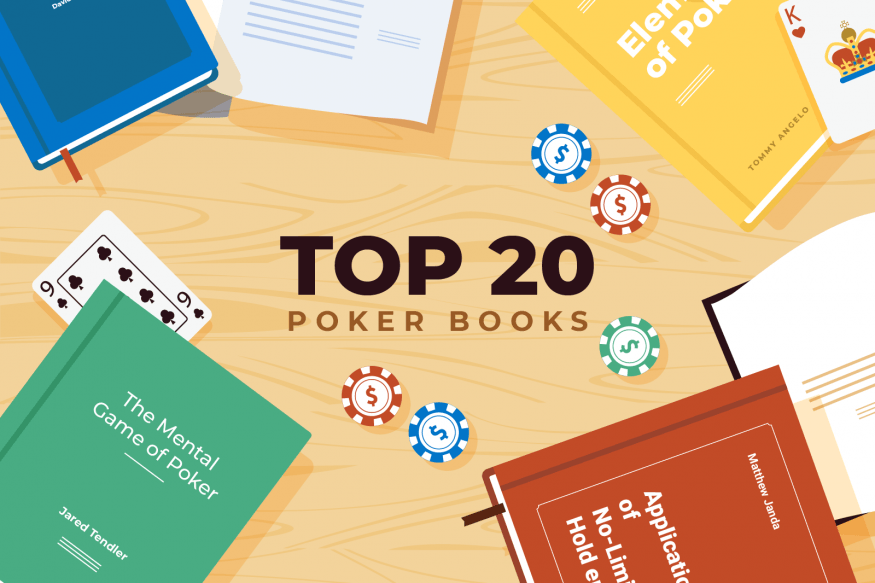
Looking to deepen your Texas Hold’em skills? While countless strategy guides and blogs flood the web, nothing rivals the lasting impact of a great poker book. Whether you’re new to the felt or searching for that edge at the highest stakes, this comprehensive breakdown highlights 20 essential Texas Hold’em books every player should consider. The focus is on practical advice, in-depth analysis, and game-changing concepts you can start applying today.
Why Read Texas Hold’em Books?
Short-form poker content online is valuable, but books allow you to immerse yourself in core concepts, detect patterns, and gain insights that shape lasting improvement. This carefully curated list prioritizes titles dedicated to Texas Hold’em, skipping works that cover poker generically or focus on other variants. Each book here offers actionable lessons specifically tailored to Hold’em cash games or tournaments.
20. Sit ‘n Go Strategy - Collin Moshman

Perfect for players who focus on single-table tournaments, this book provides a tactical blueprint from the opening hands through the endgame. Moshman’s approach segments strategies by blind levels-low, medium, and high-delving into how to shift gears against various opponents. He includes detailed discussions of equity, pot odds, ICM dynamics, the bubble, and more. With essential charts and practical advice on game selection and bankroll management, this remains a foundational text for Sit ‘n Go aficionados.
19. Winning Poker Tournaments One Hand at a Time - Eric Lynch

Eric Lynch draws upon his extensive experience to tackle the critical decisions in multi-table tournaments. This book stands out through its meticulous ‘hand-by-hand’ analysis, revealing advanced tactics for key stages and scenarios. Lynch systematically covers deep-stack vs. short-stack play, dealing with multiway pots, c-betting, bluffing, and much more. Numerous real-life examples provide clear applications, making this a valuable tool for those looking to sharpen their tournament edge.
18. Harrington on Hold ’em: Expert Strategy for No Limit Tournaments - Dan Harrington

Dan Harrington, a legendary champion, distills years of experience into a deep dive on tournament adjustment. Rather than just presenting generic tables, he examines distinct stages (preflop, flop, turn, and river) and how player archetypes impact optimal strategy. Filled with practical mathematical insights and analytical frameworks, this classic has helped countless players elevate their MTT performance.
17. Phil Gordon’s Little Green Book - Phil Gordon

Blending psychological nuance with strategic fundamentals, Phil Gordon’s renowned book goes far beyond basic tactics. He explores what it means to ‘think like a poker player,’ highlighting the importance of adaptability, mental preparation, and continuous improvement. Gordon offers practical advice on adjusting to different circumstances, understanding the underlying mathematics, and forging a winning mindset that adapts under pressure.
16. Poker Math That Matters - Owen Gaines

No poker education is complete without a solid grasp of probability, pot odds, and expected value. Owen Gaines makes difficult math concepts approachable for every player, offering a step-by-step breakdown from basic probability through more subtle topics like set mining, value betting, and semi-bluffing. Clear rules and plenty of sample calculations allow you to incorporate math-based decisions into your routine.
15. Modern Poker Theory: Building an Unbeatable Strategy Based on GTO Principles - Michael Acevedo

Michael Acevedo takes poker math to the next level, delivering a detailed approach to game theory optimal (GTO) strategy and its practical implementation. He covers both cash and tournament play, starting from the basics of GTO and moving to advanced analysis on range balancing, bet sizing, and leveraging software tools. This book helps players move from basic tactics to mastering the strategic depth required for today’s most competitive games.
14. Elements of Poker - Tommy Angelo

Tommy Angelo focuses on a side of poker often neglected: the habits, mindset, and emotional control that underpin long-term success. His book covers essential “real-life” skills such as tilt management, emotional self-regulation, bankroll considerations, table selection, and knowing when to leave the game. These are invaluable lessons for both tournament and cash game players, forming a solid psychological foundation before delving into advanced strategy.
13. Kill Everyone - Lee Nelson

Lee Nelson’s work is tailored for tournament players, with particular emphasis on exploiting changes in the modern poker landscape. Key highlights include sophisticated approaches to ‘poker tells,’ strategic differences between early and late-stage play, and hand-by-hand missions for exploiting less experienced opponents. The updated version even features professional annotations for additional insight and context.
12. Playing The Player - Ed Miller

This title steps away from memorized charts and instead emphasizes reading your opponent and adapting accordingly. Ed Miller expertly dissects how to classify different player types-tight, loose, aggressive, passive-and adjust both preflop and postflop. Profiling skills and strategic adaptability mark the path from a competent player to a true shark in the field.
11. The Myth of Poker Talent - Alexander Fitzgerald

Challenging the notion that exceptional poker skills are innate, Alexander Fitzgerald underscores the transformative power of structured learning. He covers practical areas such as leveraging software tools (like HUDs), developing mathematically sound shoving/re-shoving ranges, and grasping advanced technical plays. The book also hones essential skills for tournament progress, giving players an actionable roadmap for improvement.
10. Every Hand Revealed - Gus Hansen

Offering a rare window into the mind of an iconic pro, Gus Hansen provides a blow-by-blow account of every hand played en route to winning the Aussie Millions Championship. His trademark ultra-aggressive play is demystified, helping readers recognize the logic and calculation behind unconventional moves. The narrative format and tournament focus make this an inspiring read for players aiming to cultivate a fearless style at the table.
9. Strategies for Beating Small Stakes Poker Tournaments - Jonathan Little
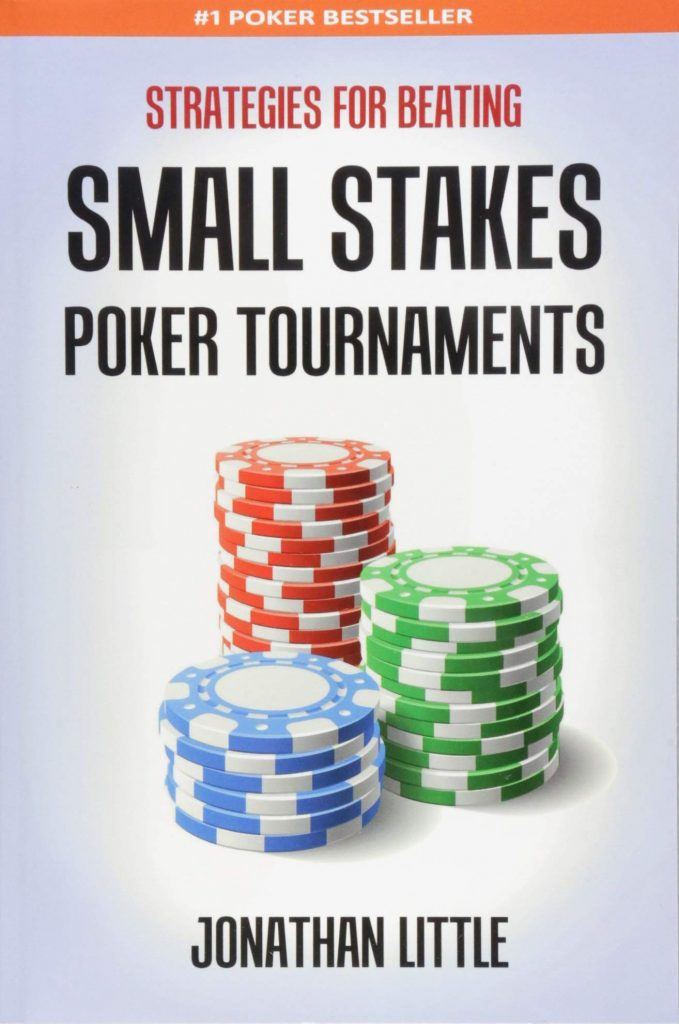
Tailored specifically to the realities of low-stakes tournament play, this book by Jonathan Little helps you spot common mistakes and adjust to the patterns of less experienced opponents. Little identifies major player types found at these tables, explaining optimal responses to both passive and aggressive strategies. Anyone frustrated by unpredictable play at micros will benefit from these tailored tactics.
8. Winning Low-Limit Hold’em - Lee Jones
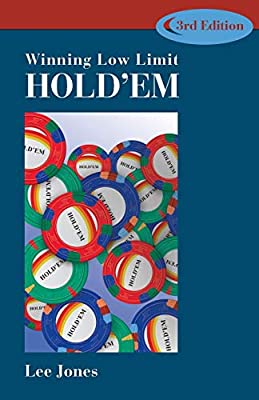
For those interested in mastering cash games at smaller stakes, Lee Jones’ book provides a structured course in Hold’em fundamentals. It methodically introduces concepts like table position, preflop/prehand decision trees, and postflop play. Regular quizzes at the end of sections ensure key lessons are retained, helping beginners solidify their strategic knowledge in a fun, interactive way.
7. Excelling At No-Limit Hold’em - Jonathan Little (Editor)

Combining the wisdom of several top pro players, this compendium demystifies the decision-making processes of champions like Phil Hellmuth, Chris Moneymaker, and more. The collaborative format exposes you to multiple perspectives on the same scenario, covering everything from beginner tips to advanced concepts like hand ranges, GTO, short-stacking, and mental toughness. Special focus is given to the psychological aspects of poker, rounding out the technical teachings with practical mental game advice.
6. Exploitative Play in Live Poker - Alexander Fitzgerald
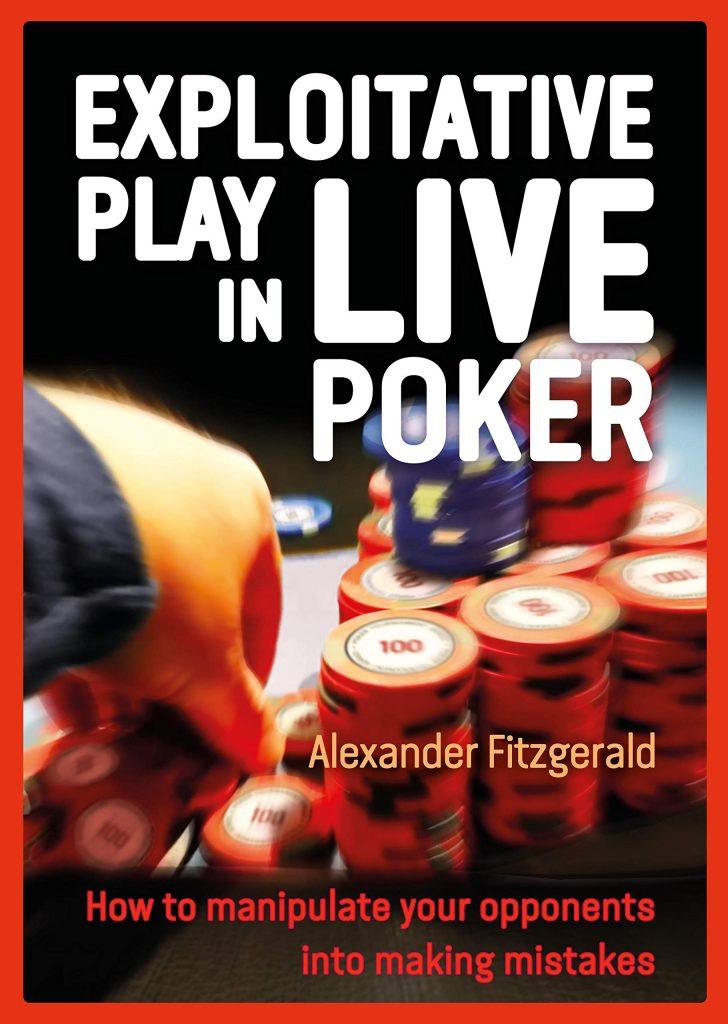
While many strategy books center on online or theoretical play, Fitzgerald’s second book targets the specific nuances of live cash games. He introduces methods to create mistakes in your opponents by leveraging human tendencies-then explains how to extract maximum value from their errors. This is a must for anyone who regularly plays in casinos or home games and seeks practical ways to exploit real-world opponents.
5. Reading Poker Tells - Zachary Elwood

Zachary Elwood sets out a detailed guide to interpreting the physical and verbal cues of poker opponents, distinguishing between behaviors in both action and inaction. By categorizing tells into those that signify strength or weakness and examining practical examples, he empowers you to detect subtle signals and use them to your advantage. Beyond reading tells, Elwood also covers deceptive techniques for masking your own hand strength.
4. Essential Poker Math - Alton Hardin

Alton Hardin makes the core mathematics of Texas Hold’em accessible to every player, even those who dislike numbers. You’ll learn how odds, percentages, EV calculations, and card combinatorics impact real-world decisions. Live hand examples illustrate each concept in practice, making it ideal for those who want a quick but comprehensive intro to the subject.
3. The Mental Game of Poker - Jared Tendler

Tilt and emotional swings are common obstacles-and Tendler’s book is the definitive playbook for banishing them. He addresses the reality of variance, controlling anxiety, and building psychological resilience. Through practical exercises and actionable steps, Tendler teaches you to avoid costly mistakes and maintain peak performance even in high-stress sessions.
2. The Theory of Poker - David Sklansky
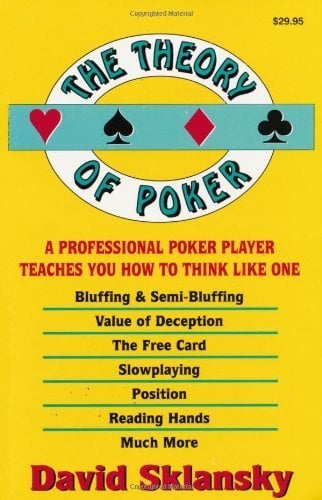
This enduring classic lays the mathematical and philosophical groundwork for every serious player. Covering a wide array of topics-ranging from pot odds and implied odds to hand reading and psychological manipulation-Sklansky provides insights that transcend any single format or era. For timeless fundamentals applicable across all forms of poker, it’s a must-read.
1. Applications of No-Limit Hold’em - Matthew Janda

Matthew Janda’s advanced, analytical guide stands out as one of the definitive texts on modern Hold’em strategy. Janda covers the art of playing complete hand ranges, executing balanced strategies, and making mathematically sound choices at every street. The book is rich with real-world examples, mathematical tables, and advice for both preflop and post-flop play. Though its density requires patience, those who apply its teachings return to the table better prepared-and armed with tools to truly master No-Limit Hold’em.
Final Thoughts
Texas Hold’em is a game of endless learning. Each of these 20 books targets specific aspects of the game-from mathematical rigor and psychological mastery to nuanced tournament or live game strategy. Whether you’re aspiring to win your first Sit ‘n Go or aiming at the final tables of major events, investing time in these works is one of the most effective steps you can take for long-term success.













